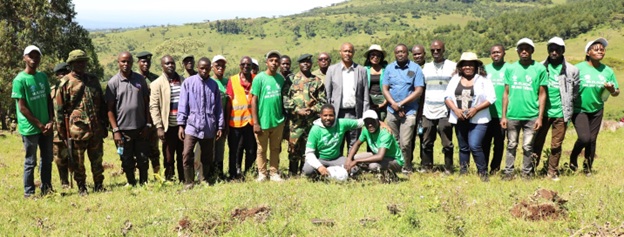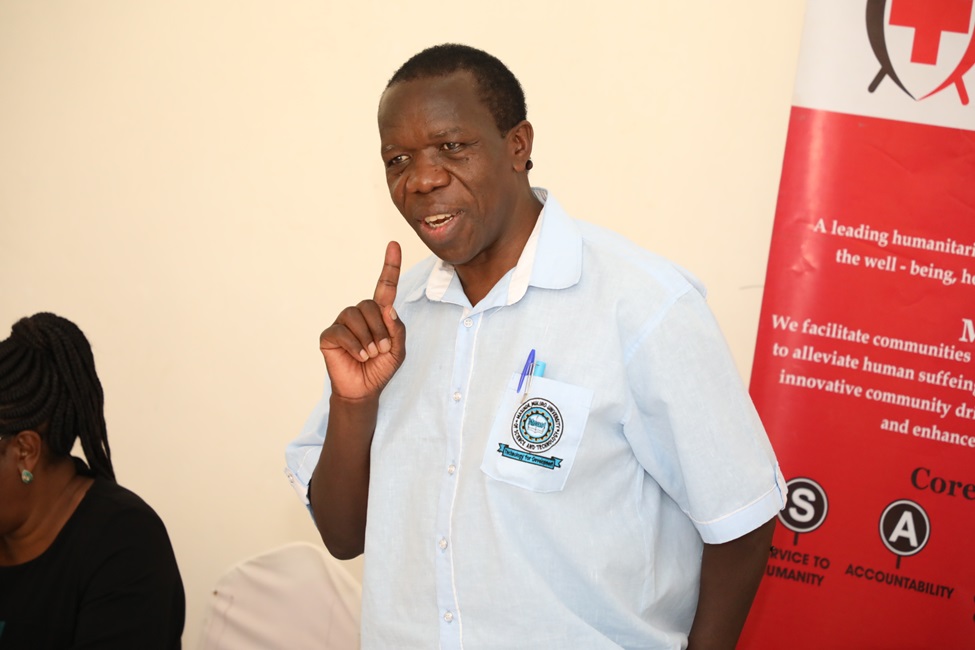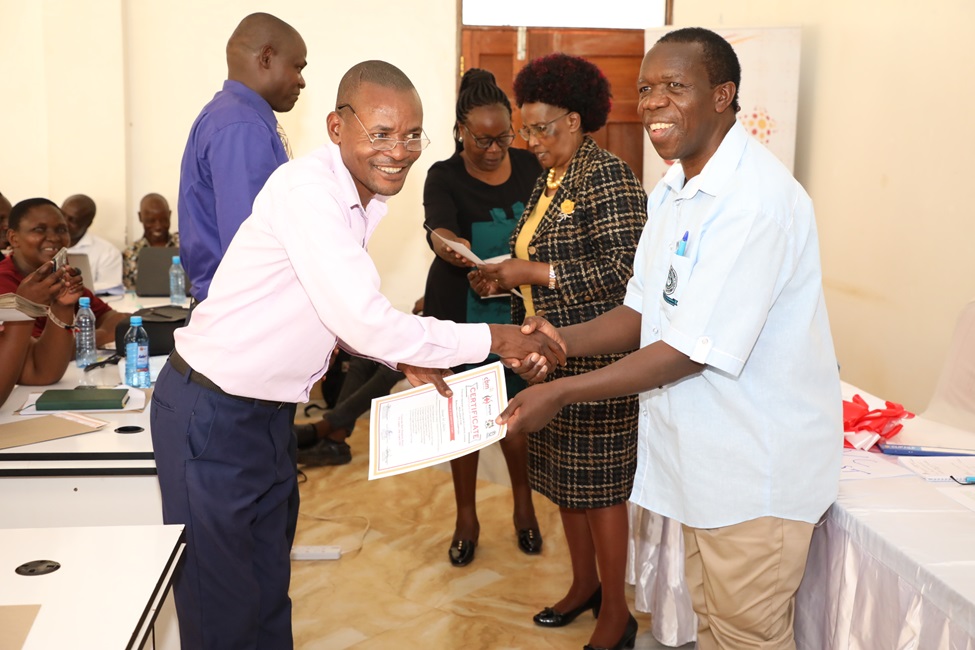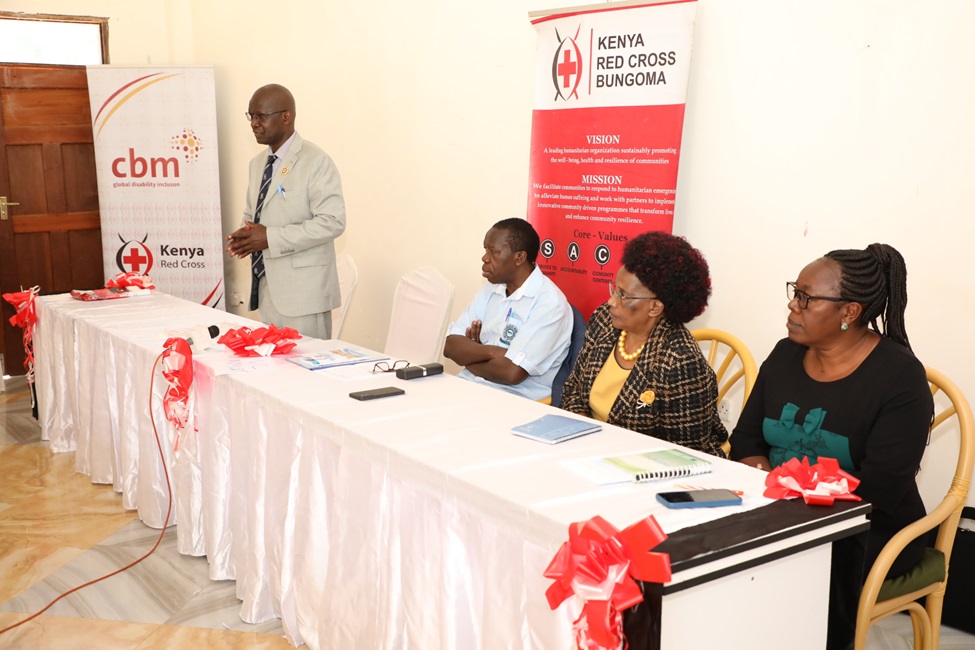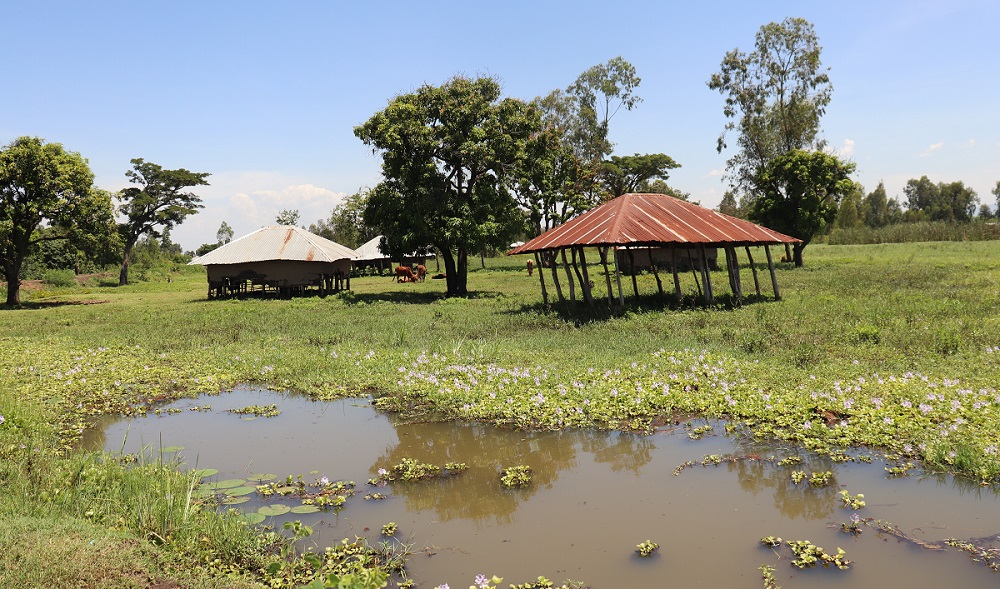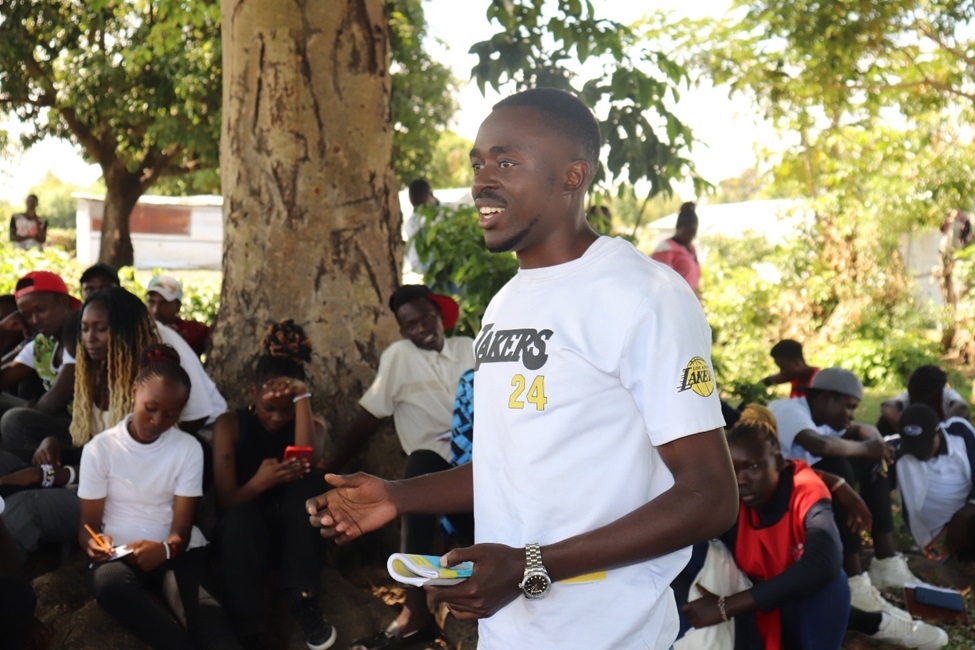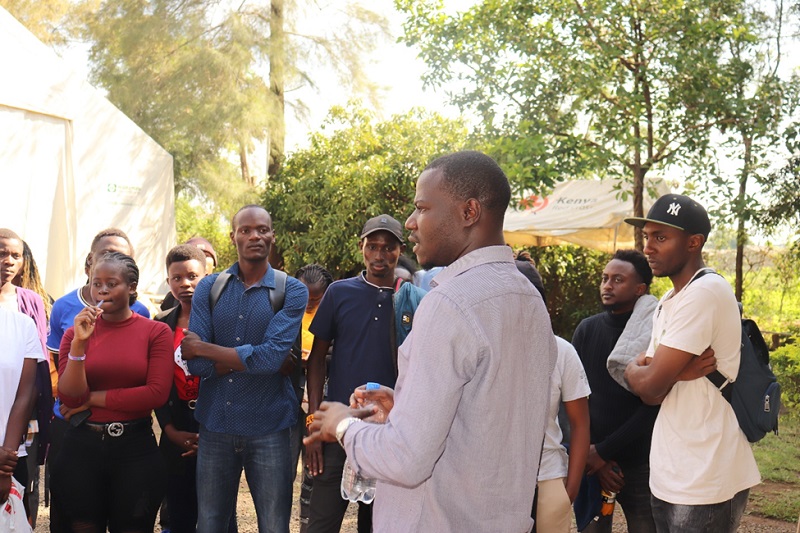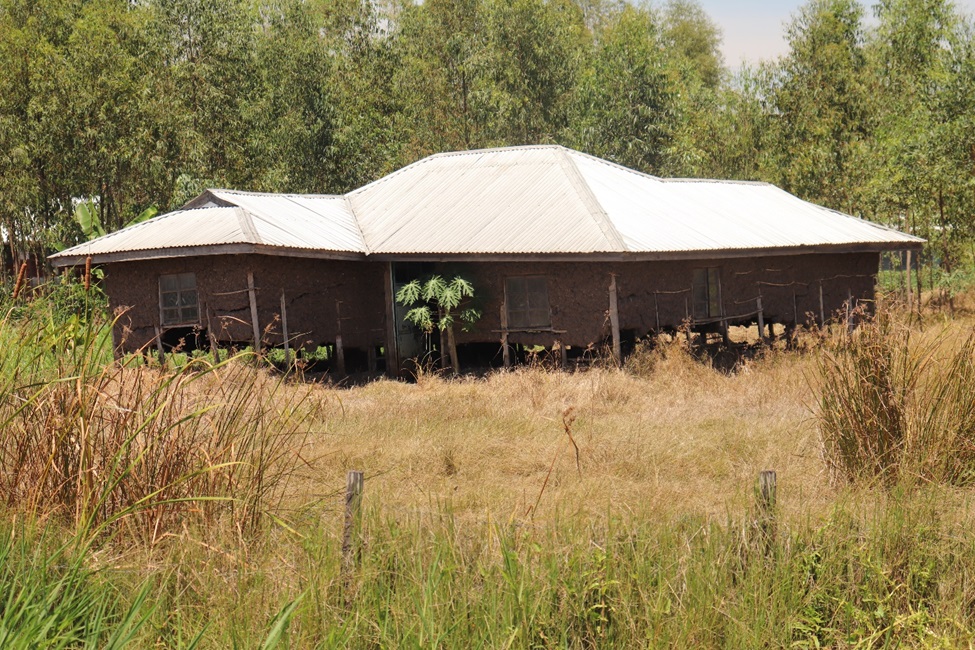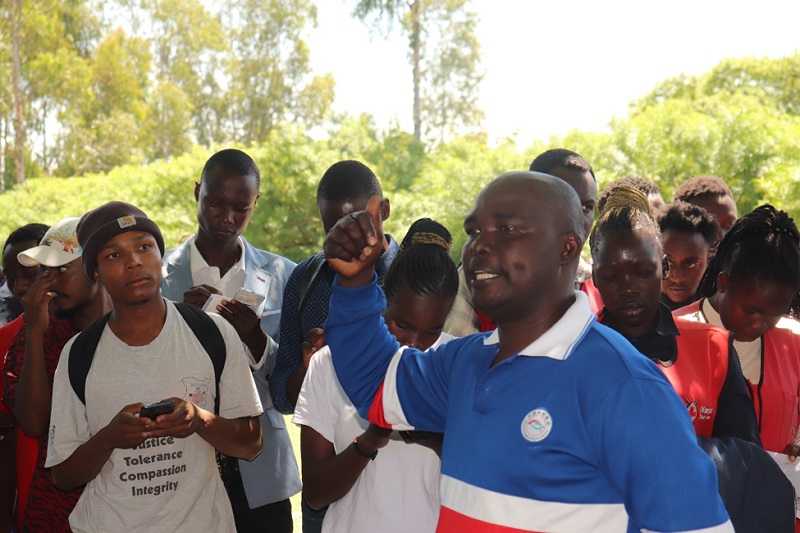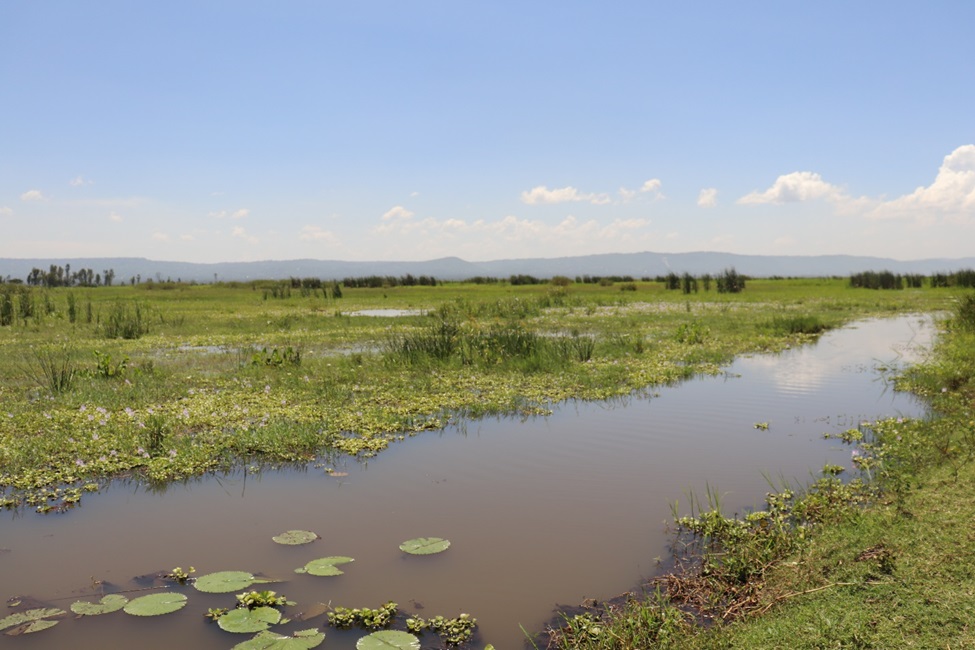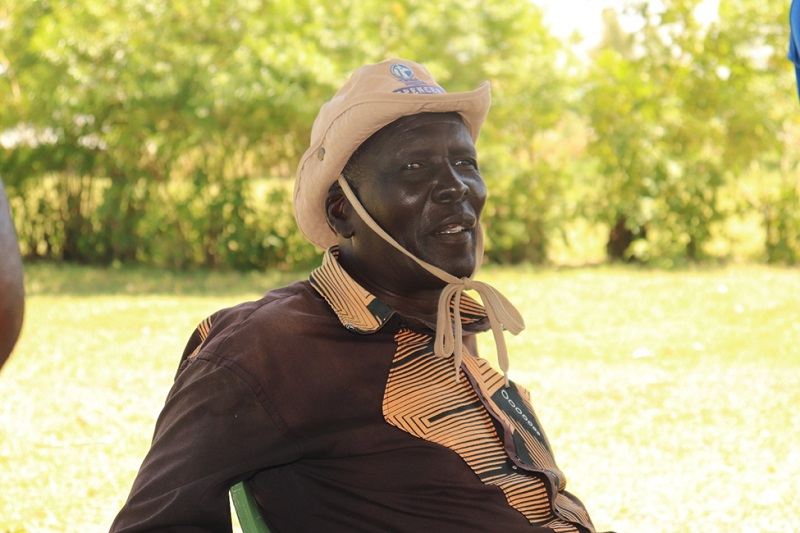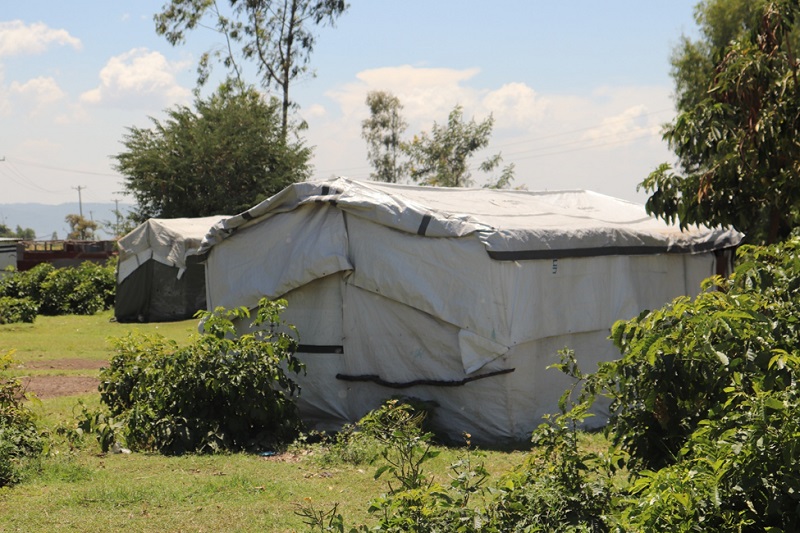Ag. Vice Chancellor, Prof. Charles Mutai, with MMUST staff, foresters and community members in Mt. Elgon.
Masinde Muliro University of Science and Technology has adopted Chemorir River Water Source in a bid to conserve Indigenous Biodiversity through Bamboo Afforestation Projectin Mt. Elgon Region. A team from MMUST, comprising of staff and students participated in a tree growing campaign, targeting 200, 000 tree seedlings. The week-long initiative, which stretched from 13 to 18 May, 2024, was conducted by MMUST in partnership with the Youths for Green Action Kenya (YGAK), the German Imaging Technology (GIT) and members of the Mt. Elgon community. This initiative by MMUST will feed into the ongoing national tree growing campaign which targets the planting of at least 15 billion trees by 2032.
“I am aware that besides the drastic effects of climate change experienced worldwide, the Mt. Elgon ecosystem has been undergoing rapid degradation. The University’s efforts to support vulnerable regions will not only contribute to Goal 13, but also to the other Sustainable Development Goals,” said the Ag. Vice Chancellor, Prof. Charles Mutai, adding that MMUST has begun the process of adoption of one of the river sources in the region.

Prof. Charles Mutai addresses foresters and Kaberwa community members during the tree growing campaign.
The founder and CEO of GIT, Dr. Sassan Dieter Khatib-Shahidi, who was present at the event, pointed out that his organization is in environmental business and made a pledge to replenish the trees already lost due to deforestation. “I am happy to be part of this campaign, whose objective is to restore forest cover in this region. Forests have been diminishing rapidly and we have to take action,” he stated.

The founder and CEO of GIT, Dr. Sassan Dieter Khatib-Shahidi, gives his remarks during the tree growing exercise at Kaberwa forest.
Speaking at the event, the Ag. Deputy Vice Chancellor (Planning, Research and Innovation), Prof. Josephine Ngaira, an internationally recognized authority on Climatology and Climate Change, noted that trees are important in soil erosion prevention and water conservation. “Bamboo trees are identified as the best species that reduce soil erosion. They act as reservoirs by collecting and storing water during rainy seasons, and restoring it back to the rivers and streams during dry periods,” said Prof. Ngaira. She assured the participants that the University Management is fully behind the initiative, and subsequently donated ten (10) bamboo tree seedlings to start the conservation process of the source of river Chemorir.

The Ag. Deputy Vice Chancellor (Planning, Research and Innovation), Prof. Josephine Ngaira, leads the bamboo tree planting at Chemorir river source.
The Coordinator, MMUST Greening Initiatives-Dr. James Owuor, pointed out that the tree growing campaign in Kaberwa is the third successful project of its kind, conducted by the University. “We conducted the first major tree growing project in Mau Forest, Narok, where a total of 100,000 tree seedlings were planted. The second one was in Mombasa County, where the University participated in a project, dubbed ‘Mombasa35000Mangroves’, and a total of 35,000 Mangrove Propagules were planted,” said Dr. Owuor. Further, the Greening Initiatives champion stated that these activities were part of the larger one million tree growing project, which involved partners, including, YGAK, GIT, Meru Oil and Victoria Furnitures.

MMUST’s Greening Initiatives coordinator, Dr. James Owuor, speaks at Kaberwa forest at the beginning of the campaign.
“At YGAK, we are committed to restoring degraded ecosystems countrywide and I am grateful that MMUST and GIT are collaborating with us in this endeavour. Our organization has brought onboard national and international partners to champion the tree growing agenda in the country,” said the Chief Executive Officer and Co-founder of Youths for Green Action Kenya, Mr. Dennis Asiya.
“The idea of MMUST adopting the Chemorir river source as well as participating in the Kaberwa forest tree growing, is highly commendable. Indeed, Mt. Elgon is a major water tower in Bungoma County and we are willing to support the University to conserve this forest,” stated Mr. Geoffrey Opanda, a forester at Kaberwa Forest Station.

National CEO YGAK-Mr. Dennis Asiya and CEO GIT-Dr. Sassan Dieter Khatib-Shahidi plant a tree at Kaberwa forest during the campaign.
This exercise attracted different stakeholders, including the local community who fully embraced the idea of tree growing. Other MMUST staff present during the event were; Prof. Benedict O. Alala, Prof. Francis Orata, Dr. Collins Matemba, Dr. Dennis Ochieno, Dr. Lydia Anyonje, Dr. Tecla Sum, Dr. Lucy Mandillah, Dr. Rose Opiyo, Dr. Peter Cherop, Dr. Issah Kweyu, Mr. Oscar Waswa and Mr. Canon Odhiambo.

A section of the tree growing campaign participants at Kaberwa forest.
Forests cover 30 percent of the Earth’s surface, provide vital habitats for millions of species, and are important sources for clean air and water. MMUST’s participation in tree growing and restoration activities is the best way of dealing with the adverse effects of climate change.
By Dr. Lydia Anyonje and Wangari Wambugu


